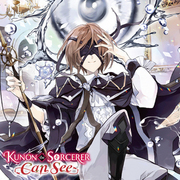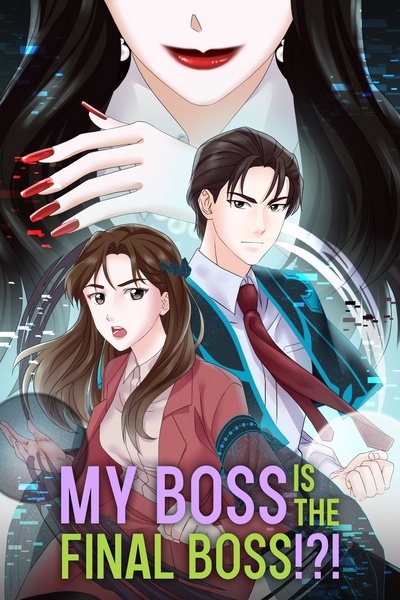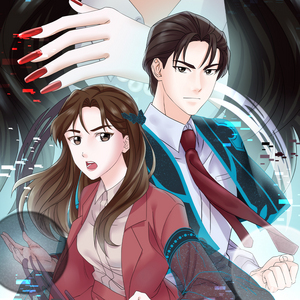Harper
The first time I played Beyond Her Shadow, I was fifteen and hiding from the world in my bedroom. The game saved me then, giving me a place where I could be strong, where I could fight back against the darkness instead of letting it consume me.
The protagonist, a woman shaped by shadows, became my symbol of resilience. Her battles were my battles, her victories, my victories.
I lost myself in that world for hours every night, the soothing hum of the game’s soundtrack drowning out my anxieties, my worries about high school and life outside the screen.
The hours turned into years, and the game stayed with me—fueling my dreams of one day contributing to the world that had given me so much.
But as much as I loved it, I never expected it to become my reality.
Eight years later, I stood in front of Nebula Corp’s headquarters, ready to help create the sequel, and my hands shook just as hard as they had the first time I picked up the controller.
The building pierced the fog-laden skyline like a blade of obsidian and steel. My reflection in the glass doors showed a woman trying desperately to look professional—light brown hair tamed into submission, dark eyes wide with anticipation, and a blazer that just the night before still had the price tag marks on the sleeve.
I pushed through the doors into a lobby that made my gaming setup at home look like ancient technology. Holographic displays floated in mid-air, seamlessly transitioning from one breathtaking achievement to the next.
Characters from their most popular games leapt between screens: a warrior wielding a plasma sword, a mechanic building impossible machines, and there—my heart skipped—the protagonist from Beyond Her Shadow, her darkness coiling around her like a living thing.
I froze. Seeing her again, after all these years, felt like stepping into a dream.
Employees streamed past me, their conversations a symphony of gaming terminology that made my inner nerd want to squeal with joy.
“The ray tracing on the new engine is insane—”
“Did you see the latest build? The shadow mechanics are—”
“We need those character models by Thursday—”
Each conversation made my inner nerd want to squeal with joy.
“Harper Wells?” A receptionist with electric blue hair waved me over. Her name tag hovered above her desk in augmented reality. “Perfect timing. Orientation is about to start in Conference Room A. Down the hall, third door on your right.”
I followed her directions through the sleek, minimalist hallways, each step making the enormity of the situation sink deeper into my bones. The walls were a mixture of polished concrete and living tech, subtly shifting as if alive.
The floors were glass, with tiny lights embedded beneath that flickered and pulsed like the heartbeat of the building itself.
When I reached the conference room, my breath caught in my throat. The room looked like something straight out of a futuristic movie, a seamless blend of cutting-edge technology and sleek, high-end design.
The walls were made of smart glass that cycled through Nebula’s portfolio, constantly changing the visuals around us.
A massive holographic display showing the Nebula Corp logo dominated the center of the room, rotating slowly in three dimensions, casting light across the room like a celestial body in motion.
Other new hires drifted in, their expressions matching the butterflies in my stomach. I recognized a few faces from the gaming industry blogs I followed—an award-winning animator, a narrative designer whose indie game had gone viral last year.
They were all here, as if fate had conspired to place me among the best and brightest of the gaming world.
And there was me—someone who just graduated from college.
What was I doing here among these people?
The door hissed open, and the room fell silent.
Victoria Crowe—CEO of Nebula Corp—entered like she was stepping onto a stage, each movement precise and deliberate. She was tall and elegant in a way that seemed almost artificial, her blonde bob cut with mathematical precision.
But, it was her face that caught my attention—or rather, what was wrong with it. Her skin was too perfect, like a 3D model before you add surface imperfections. Her ice-blue eyes shone like polished glass, reflecting light in ways that human eyes shouldn’t.
“Welcome,” she said, her voice rich and commanding, “to the future of gaming.” She gestured, and the holographic display exploded into a constellation of gaming moments from Nebula’s history. Characters from their most iconic titles danced through the air, each one a living testament to the company’s groundbreaking work.
“Look around you. What do you see? Games? Entertainment? Escape?” She paused, her unnatural eyes scanning the room. “You see limitations waiting to be broken.”
The display shifted, showing scenes from Beyond Her Shadow. “When we released this game, people said we were pushing too far. That our graphics engine was too ambitious, our AI too advanced, our story too complex.”
A smile curved her lips, and for a moment, her shadow on the wall seemed to twist. “They said the same thing when we introduced neural-adaptive gameplay, when we pioneered emotional response algorithms, when we began exploring the boundaries between player and avatar.”
She stepped through the hologram, scattering light like diamonds. “You’re not here because you’re the best—though you are. You’re not here because you’re innovative—though you certainly are that too. You’re here because you see what games can become. What they must become.”
The images around us shifted faster, becoming almost subliminal. “We’re not just making games anymore. We’re creating worlds. Realities. And you,” she looked directly at me, and my blood turned to ice at her unnatural stare, “are going to help us tear down the walls between them.”
The holographic display faded, leaving spots dancing in my vision. For a moment, the only light was the soft, eerie glow of the logo on the far wall.
Victoria’s smile didn’t quite reach her glass-like eyes as she concluded, “Your department heads are waiting to meet you. Ms. Chen will direct you to where you need to go.”
She turned with fluid grace and strode out, her heels clicking against the polished floor. Just before she exited, I swear her shadow stretched across the tiles behind her—and in that moment, it rippled like dark water, a subtle wrongness that made my skin crawl.
Ms. Chen, a petite woman with perfectly pressed business clothes, began calling out names and assignments. While we waited, I noticed the other interns exchanging glances and whispers. A guy with wire-rimmed glasses leaned toward me.
“Did you notice anything weird about—” he started, but Ms. Chen called his name (“Daniel Parker, Creative Writing”), and he hurried off with an apologetic shrug.
When she called “Harper Wells, Programming,” my heart leapt into my throat. This was it. I followed her directions through a maze of corridors, each lined with concept art from various Nebula games.
I recognized most of them—the ethereal landscapes from Stardancer, the mechanical marvels of Chrome Legacy, and finally, the haunting shadowscapes from Beyond Her Shadow.
The programming department occupied the entire west wing of the fourteenth floor. The first thing I noticed was the view—floor-to-ceiling windows showcased the city below. Today’s fog made the buildings look like they were floating in clouds.
The space was open plan, but cleverly divided into smaller working groups by curved partial walls decorated with wireframe designs and strings of softly glowing code.
The air hummed with energy—both literal and metaphorical. Dozens of monitors displayed lines of code, 3D renders, and testing environments. Some developers wore AR glasses, their hands moving through invisible interfaces as they manipulated unseen elements.
Others clustered around a holographic display, debating something about “shadow physics” with the intensity of sports fans arguing about a controversial play. This was it. The heartbeat of the gaming world.
That’s when I nearly collided with someone.
“Whoa there,” he said, catching my elbow. His gray eyes crinkled with amusement. “You must be Harper. I’m Jace Turner, your programming lead.”
Of course he was. Because apparently the universe wanted to test my ability to function while sitting across from someone who looked like they were custom-designed by a particularly talented character artist.
He had the kind of face that would take hours to perfect in a character creation screen—strong jawline, kind eyes, and dusty blonde hair that looked artfully tousled.
“Hi,” I managed, trying to sound professional while my brain short-circuited. “Yes, I’m Harper. Sorry about almost. . .” I gestured vaguely, feeling my face heat up.
He laughed, and the sound did nothing to help my composure. “No problem. Come on, I’ll show you your desk.”
My desk turned out to be directly opposite his. Perfect. I’d just spend the next year trying not to stare at him while I worked. No pressure at all.
Our desks were in a cozy corner near the windows. Mine faced east, giving me a perfect view of both the city and Jace whenever I looked up.
His desk was organized chaos—three monitors displayed different development environments, action figures from various Nebula games stood guard over his keyboard, and a small plant that was somehow thriving despite looking like it hadn't been watered in weeks.
My desk was pristine in comparison, almost sterile. A brand new monitor sat ready to be configured, its screen still covered with protective film. There was a welcome package with a Nebula Corp logo that shifted colors when it caught the light.
“The bottom drawer has all the cables you’ll need,” Jace said, returning to his seat. “We usually sync up at nine each morning to go over tasks, but today you can focus on getting your environment set up.”
He ran a hand through his hair, making it even messier. “Oh, and fair warning—Layla from IT will probably stop by later. She’s particular about how we treat her ‘babies.’”
I nodded, probably too enthusiastically, and he returned to his desk. Right. I could do this. I was a professional.
Around us, the office buzzed with activity. Someone cursed colorfully at a failed compile. A discussion about optimizing render pipelines drifted over from the next pod. The coffee maker in the break room—which looked more like a spacecraft’s control panel than a beverage dispenser—chirped that it had finished brewing another pot.
I took a deep breath, trying to absorb every detail of this moment. The slight ozone smell of too many computers in one space. The way the fog outside made the light soft and diffuse. The gentle clicking of mechanical keyboards all around me. This was really happening. I was really here.
With trembling fingers, I pulled out my laptop—my faithful companion through countless all-night gaming sessions and coding sprints. Time to prove I belonged.
The screen flickered to life, but instead of my usual login screen, the display tore apart like someone had taken a knife to reality. Pixels scattered and reformed, the screen going dark except for two words that appeared one letter at a time, like someone typing from the other side:
GET OUT.











Comments (1)
See all